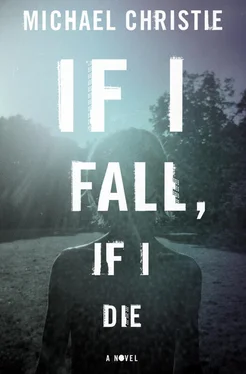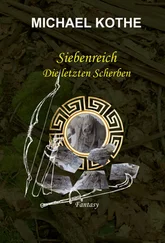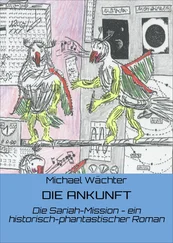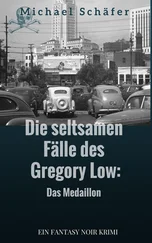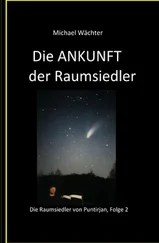Though she had no mind for schoolwork, Diane advanced into high school mainly because, she suspected, they wouldn’t dare split the poor twins up. Charlie continued the fervency of his studies, planting his name on the honor roll each year and drilling himself after school with his dictionary and the door-stopping almanacs of trivia and crossword puzzles that he tore through nightly after completing his homework. It was as though he was burning through their collective ambitions himself, and in some way Diane eased the slow-blooming agony and confusion of losing her mother by taking shelter behind him, behind the battering ram of his anger and drive.
Because Thunder Bay was neither large nor moneyed enough to support a private high school, children from all walks of life were thrown together, and Charlie quickly struck up a friendship with Whalen Agnew, the son of one of the major stakeholders in the grain elevators on the Lakes, including Pool 6—a tall boy with a high, regal forehead and grades almost as good as her brother’s. Soon the two were as inseparable as the twins once were. Charlie would have Whalen over to study, visits for which Diane would spend the week beforehand cleaning, horrified by the thought of grain dust clinging to his finely cut pants as he sat before his potato-mound that she’d tried to enliven with a loaf of fresh-baked bread and a salad.
Then one summer day Whalen called while Charlie was at the library and asked her over to mend the pocket of a sport coat for him. Heart pounding, she hurried up the hill, terrified and thrilled by the prospect of nurturing a secret from her brother, who already demanded a complex, devoted loyalty from his best friend and would seethe if he found out they’d met without him.
They sat in Whalen’s lush parlor, and she couldn’t keep herself from running her fingers over the varnished moldings of his stately house, with its scrollworked furniture, leaded glass, and bookshelves loaded with fine editions of Victorian novels she then vowed to read someday. It was the first time she’d seen books in any concentration. But beside the glitter of wealth and knowledge, it was something in Whalen’s face that gripped her. Or rather something that wasn’t. None of her brother’s fury or her father’s skeptical reserve. Just a welcome blankness, like a pristine canvas she could brush her own story upon. After some polite discussion, she sewed his pocket, the stitches of which, thrillingly, seemed more snipped than worn, and as he was thanking her nervously in the foyer while she pulled on her raincoat, she suddenly took her brother’s best friend by the shoulders and kissed him. His lips were dry and fragrant as fresh-sawn fir. This was the first time she’d felt real joy: the helium-filled skull, the thunderous heart, so similar to panic, but in lesser quantities it was pure pleasure. She pressed Whalen into the cashmere coats of the front closet until he shook and whispered that he’d give anything to see her again. She agreed and walked down the hill, flushed, wonderfully guilty of something for the first time in her life.
After that she and Whalen met secretly, mostly in his family’s second car, parked in one of his father’s disused industrial yards down near the elevators. They’d toss around in the car’s mahogany-trimmed interior and scooped-out leather seats, then share American cigarettes afterwards, watching the lights of the moored lakeboats sizzle through the dark. How much of the thrill was sparked by that first betrayal of her brother and how much was her true affection for Whalen, she could not say today, but sitting in his car on those nights, it was as though the long-rusted gears of her own life had finally begun to turn.
Then at dinner one night, just a few weeks shy of their sixteenth birthday, Theodore suggested that upon their graduation the following spring, there would be a spot for Charlie at Pool 6. “The grain trade is slowing,” Theodore said, “but there’re still more than a few good years left down there, son. It’s a right good living.” Charlie excused himself, every little muscle in his face squirming with rage. Diane had watched Charlie send off early applications to the English Departments of the Universities of Toronto and British Columbia — his most sure-footed approaches to law school — and figured his acceptance was guaranteed. “I want you to have options I didn’t,” Theodore called to Charlie as he climbed the stairs.
Her brother may have viewed Thunder Bay as a trap to escape after their mother’s death, but Diane had no such ambitions. Whalen would be taking over one of his father’s businesses, and though they’d yet to meet publicly, she believed there was a future for them, especially once Charlie was off at university. How strange it was, she’d often thought since, that she’d be the one to make it out of this place in the end, the one to accomplish things and see the world — only to fall back again, into a place even more dangerous and hopeless than the one they’d known.
Now with her mouth dry and rubbery from what must have been an hour of talking, Diane removed the goggles and clicked off the recorder, ending her Session early. But in the dance of light lingering in her eyes she found the phantom of Breughel’s Hunters in the Snow —Theodore’s favorite painting — a work she and Arthur once saw on a trip to New York: hunters returning to a village with their kill, one measly fox strung up, the rough men either pleased with their catch or gravely disappointed. Either proudly providing for their people or preparing to hunt them , one couldn’t be sure.
She went downstairs, made tea, and sat in the chair with a good vantage of the front sidewalk. Will’s class ended at 3:25. His walk usually took nine minutes. And it was already 3:46, which could mean anything, really, and she tried to pry her eyes from the clock as her mind was already spinning to the creek out back, him in it, wallowing among the rocks, then a flash of him lifeless and pale on the mucky bank, limp weeds and slugs crowding his mouth. She stood, took a long breath, pulled out her wrist elastic good and far, let it go, and assembled some calm in the sting.
Since she’d been scouring the paper for news of that orphan who’d gone missing, Thunder Bay had assumed an even more sinister timbre. Trucks slowing out front for children to pass now seemed menacing, carnivorous, and the woods behind their house, with its dismal, soldierly birches, seemed ever more ready to conscript her son and order him out into the trees. Of course, children went missing all the time in Toronto — yet somehow these tragedies blended into the noise of the city. Here it was close, intimate, like a terrible chime struck in your bedroom.
She walked again to the sink, poured out her tea, rinsed the cup, set it in the dish rack, after this realizing that she’d actually wanted it, so she flipped on the kettle again — for a moment terrified it would shock her — and stood with her hands on the counter, listening to it heat up like a jet fighter approaching from far off.
With a fresh cup steeping, she walked back to the window— 3:51 —her eyes scouring the street, the neighborhood’s most attentive husbands already pulling into driveways to help out with dinner, but her son was still out there, and her breaths were coming sharp now, white bolts of fear zapping through her, scalding tea splashing on her shaky hand. She sat again in her chair. What she couldn’t seem to evict from her mind, no matter how many Sessions she did, was the vestige of her brother Charlie she saw on her son’s face that first afternoon he’d put on his slippers and stepped out the front door: a mere hint of his slanting grin — the slight angle of a pinball machine — and the stubborn resolve and angry ambition that in the end was his ruin — and with that her vision darkened, and her heart was a fist driving her repeatedly square in the chest, and she’d just reached to snap her elastic again when she heard the door come open and her son call out like any normal boy returning from school. Next came the thump of his backpack and the jangle of coat hangers in the hall closet, and she applied these comforting sounds to her black thoughts like a sonic brake pad, which allowed her to see his bright face swing around the corner, his hair so long now, swooping into his eyes, the color of wood grain, of wheat, and then he spoke, this small miracle of biology that for so long was only hers to witness: “How’s it going, Mom?”
Читать дальше
